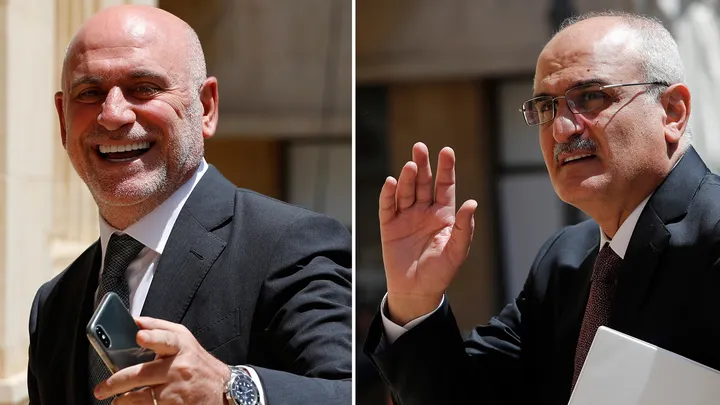In a significant development in the ongoing investigation of the catastrophic 2020 Beirut port explosion, the Lebanese Court of Cassation, under Judge Sabbouh Suleiman, has suspended the arrest warrants for two key figures, Youssef Fenianos and Ali Hassan Khalil. This move, announced on Tuesday, marks a critical juncture in a case that has gripped the nation and the world with its tragic consequences and complex political entanglements. The explosion, one of the most severe non-nuclear blasts in history, resulted in widespread devastation and raised profound questions about governance and justice in Lebanon.
The suspended warrants targeted Youssef Fenianos, the former public works minister, and Ali Hassan Khalil, a former finance minister and current member of parliament. Their involvement dates back to 2021 when Judge Tarek Bitar, leading the probe, accused them of intentional killing and negligence. This accusation was tied to the explosion, which caused over 200 deaths and extensive damage.
The decision to lift the warrants has been subject to controversy. Fenianos had previously sought Bitar’s removal, alleging a “legitimate suspicion” over his case handling. Simultaneously, there has been a growing chorus of demands from some politicians and security officials for Bitar’s dismissal, a sentiment echoed by the families of victims and rights groups frustrated with the prolonged investigation.
Despite the severity of the charges, including homicide and criminal negligence, the judiciary’s efforts have been repeatedly hampered by political interference. This interference has been so pervasive that, despite issuing arrest warrants for cabinet ministers and heads of security agencies, no detentions have occurred.
The international community has also played a role. In September 2020, the United States Treasury imposed sanctions on Fenianos and Khalil, citing corruption and ties to Hezbollah. These sanctions underscored the broader geopolitical dimensions of the case and the complexities facing the Lebanese judiciary.
The August 2020 blast, which claimed at least 218 lives and wounded over 6,000, also wreaked havoc on Beirut, causing billions of dollars in damages. The blast’s epicentre was a stockpile of ammonium nitrate, a highly explosive material, which had been improperly stored at the port for years. Investigations have revealed that many state officials were aware of the dangerous stockpile, yet no measures were taken to avert the disaster.
Over three years since the tragic event, the suspension of the arrest warrants represents another turn in a saga marked by political intrigue, international scrutiny, and a quest for justice that remains unfulfilled. As Lebanon grapples with the fallout from the explosion, the latest court decision highlights the ongoing challenges in holding those responsible accountable and providing closure to a nation still in mourning.







